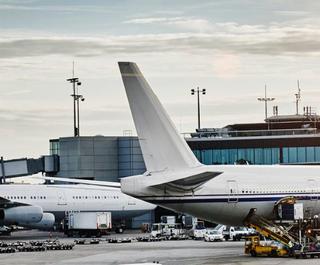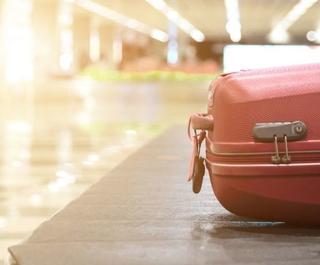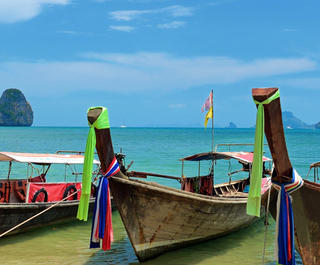
Italy is hard to resist… All that culture and art, the historic cities and seaside villages, the pizza and gelato (oh and that Tuscan wine!). No wonder Aussies are constantly craving a taste of this visually-stunning and cultured paradise in Europe, complete with sparkling Mediterranean seas.
Venice, Rome, Milan and Florence represent just a handful of the iconic must-dos on a quintessential Italy holiday hit-list. But more and more travellers are clueing on the beauty and wonder of trailing the seaside routes of the Cinque Terre region, seeking out secluded beaches in Sicily and stopping to soak up the beauty and peace of Lake Como.
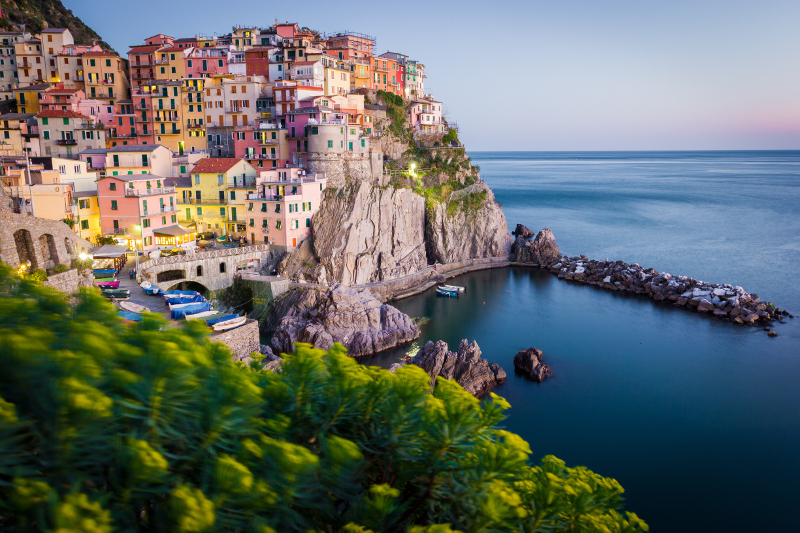 Italy's Cinque Terre region is simply stunning.
Italy's Cinque Terre region is simply stunning.Thankfully, now is the perfect time to start researching and locking in a wonderful escape to Italy in the peak of summer for 2018 with hot deals at their ripest, right now.
Is money on your mind? Travel Money Oz are the foreign currency experts, so we’ve tapped into their advice to bring you everything you need to know about managing your travel money in Italy like a pro.
Their number one tip?
Plan Ahead
Don’t leave your foreign exchange requirements to the last minute as you may just wind up having to purchase your currency at the airport and that often means high commission and fees – so less in your pocket.
Pre-purchase your currency for Italy before you go. You’ll be glad you did!
Did You Know?
With Travel Money Oz you can set up a Currency Alert. This means you can select your preferred currency exchange rate and then receive an email once the exchange rate hits this mark.
If you’re planning well ahead of your holiday, this is a great way to keep an eye on any fluctuations and never miss out on an opportunity to get the best possible rate – and essentially, money that’ll stretch further on your dream holiday.
You can also check exchange rates in store or online.
What Currency Will I Need?
You’ll require euros throughout your Italian holiday. Italy was actually one of the first countries to adopt the euro, in 1999. Tourists reaching Italy without foreign currency can obtain Euros through any bank, at ATM machines and exchange offices (Ufficio di Cambio) at transport hubs and in main cities.
 Plan the how tos (and how much) before landing in Italy so you can relax and enjoy the trip!
Plan the how tos (and how much) before landing in Italy so you can relax and enjoy the trip! Travel Money Oz recommends arriving with some cash in hand to help you hit the ground running on holidays – and save yourself from having to find somewhere to obtain euro notes and coins when you’ve just stepped off that very long, long-haul flight.
Everyday Costs In Italy
Coffee – 2 euros
Bottle of water – 3 euros
Pizza or pasta – 6 to 12 euros
Museum entry – 12 to 30 euros
Restaurant meal with wine – 30 euros
Taxi from airport to Rome – 50 euros
Wine tour – 65 euros
Tips For Carrying Cash
Travel Money Oz recommends carrying your euros in a variety of monetary methods so you’ve got all bases covered. The best way to do this is to have a mix of cash, credit cards and a pre-paid travel money card, and if you wish to, you can also carry your credit card for any unexpected (or expected) big-ticket items.
Why Consider A Travel Money Card
Travel Money OZ offers a great Key To The World travel money card that is reloadable, safer and more secure than carrying large amounts of cash or relying purely on credit. For many, this offers peace of mind when travelling in a foreign country.
There are many benefits. It can be topped up 24 hours a day, seven days a week quickly and easily online from anywhere in the world – on the road or before you even leave home (or even at the airport once you hit the tarmac, if you’re a last-minute traveller).
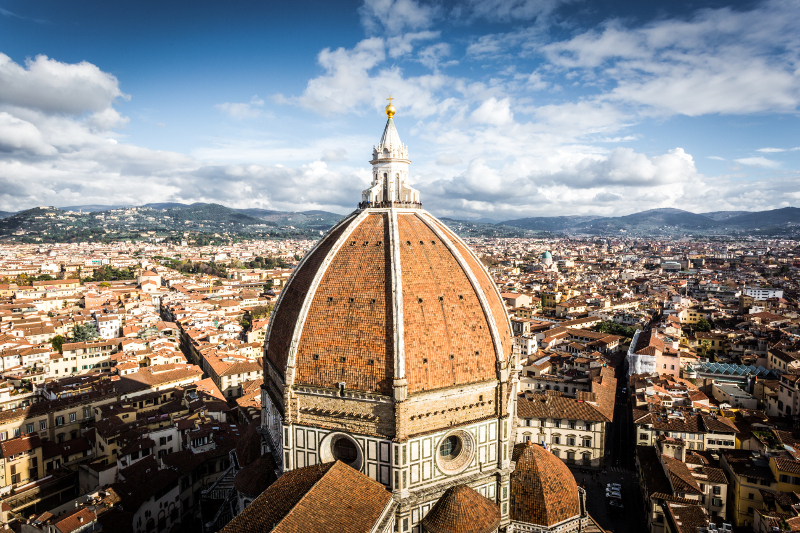 Florence is a popular stop in Italy for its famous art and beautiful architecture.
Florence is a popular stop in Italy for its famous art and beautiful architecture.The best part? It allows you to lock in your exchange rate and provide a safe and effective way to access your money overseas. Use it at ATMs like a debit credit card to access cash and also use it like a MasterCard for goods and services.
It’s also available in 10 different foreign currencies – including euros, which means it will benefit you in many other countries beyond Italy if you’re exploring more of Europe in the one holiday.
The Key To The World online portal is also an easy-to-use hub for your Cover-More travel insurance, global SIM and trip itinerary, so all your travel plans and details are easily accessible at your fingertips. Key To The World is available to purchase from Flight Centre and Travel Money Oz stores.
Yes, You Can Shop Tax Free!
According to the Italian law, if you are a permanent resident of a non-EU country you are eligible for tax-free shopping. This means you can claim a refund for goods and services tax paid for any items you buying while on holidays in Italy, as long as it’s intended purely for personal use.
There is a minimum purchase amount (around 150 Euros) and you must fill in the Tax Free Form and follow the process to claim – just be sure to research the finer details before you go spending up a storm!
Is Tipping Customary In Italy?
It’s regularly discussed and debated as to whether tipping is customary in Italy.
Often, a tip is already included in the bill. But you may like to check if it is included or not before you decide. If it’s not – at a restaurant – the standard tip encouraged would be around 10 to 15 per cent.
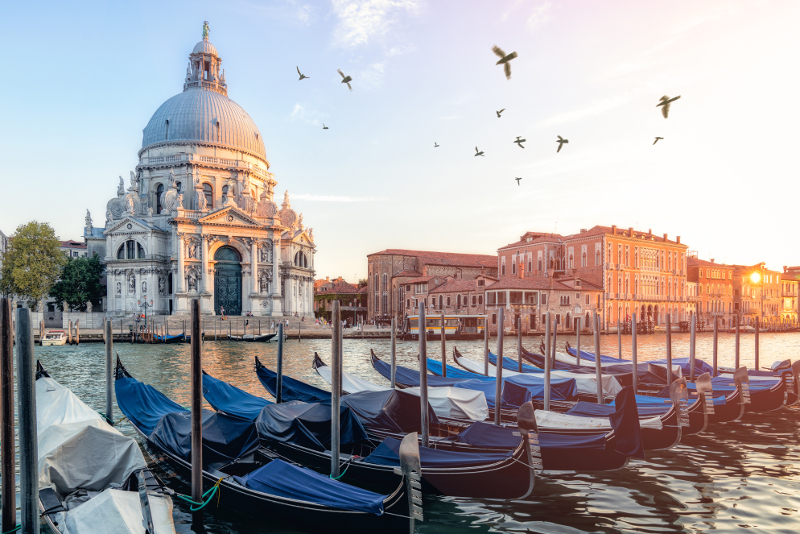 Venice is a must-do stop at least once in your life.
Venice is a must-do stop at least once in your life. At a bar or coffee shop, you may round up to the nearest euro or leave some loose change for a coffee or drink; if a porter helps you with a bag, a one or two euro tip is suffice – no more than five euros; a doorman should be happy with a simple ‘thankyou’ (“grazie” in Italian), but you could also offer a one euro tip if you like.
At the end of the day, it is completely up to you if and how much you tip. If you wish to tip while on holidays in Italy, it should reflect the level of service you received. As in many places, to ensure the person gets the tip personally try to tip in cash instead of by credit card.
Is Haggling A Thing?
Sometimes, yes. Other times haggling in Italy is a big no-no. It depends where you where you go. In Milan in the north – a highly revered fashion city – haggling is not appropriate (shopkeepers might be offended if you try).
The further south in Italy you go however – and in places like Sicily – the more acceptable it becomes. This is usually limited to items such as crafts, artisanal and artistic works – if you're buying more than just one item and want to get the total price down.
Helpful Italian Phrases To Know
Money – “Il denaro / i soldi”
Change – “Cambio”
Cash – “Contante”
Bank note – “La banconota”
Coin – “La moneta”
Bank – “La banca”
Cash desk – “La cassa”
Exchange office – “Ufficio di cambio”
ATM – “Bancomat”
Exchange rate – “Il tasso di cambio”
Credit card – “Carte di credito”
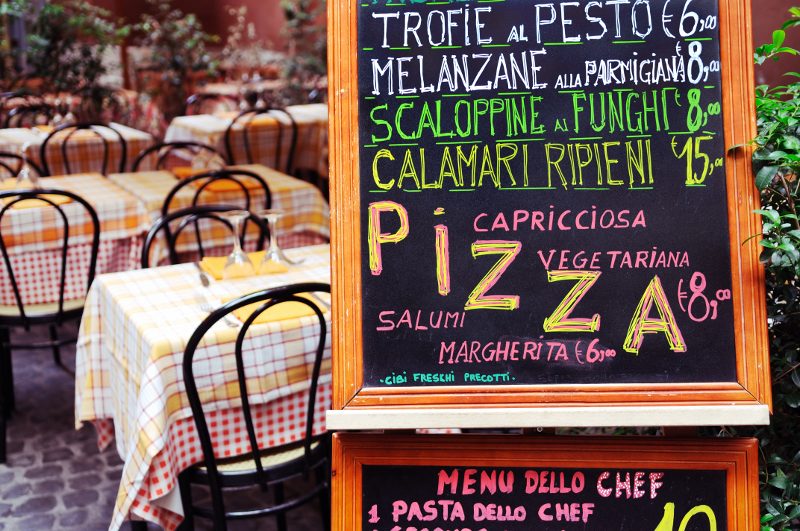 If you love Italy for its food, be sure to set aside some funds to eat you heart out.
If you love Italy for its food, be sure to set aside some funds to eat you heart out. How To Navigate Italy’s ATMS
In Italy the ATMs are known as Bancomat. As a tourist, you’ll find them readily available at banks, transport hubs like airports, train stations and sea ports as well as major tourist hubs and busy streets.
The Bancomat will operate much like it does here at home. At the beginning of the transaction, if will ask for you preferred language so you can easily withdraw money with the ease of English.
Just look ensure the symbol on your card matches the symbol on the ATM card and you’ll be cashed up in no time.
Banking Hours
If you should need to head inside a bank branch for personal customer service, take note that Italy’s banking hours vary slightly compared to regular banking hours back home.
In Italy banks are typically open Monday to Friday from 8.30am to 1.30pm, and for an hour-and-a-half in the afternoon from 2.30pm to 4.30pm (or something similar, depending on the bank). In busy tourist areas however, the banks will often open for longer periods of time, from 8.30am to 4pm.
On weekends and national holidays banks are closed and will sometimes close early the day before. Also, hours may vary in Italy’s smaller, more off-the-beaten track destinations – so if you tend to stray off the typical tourist trail when you’re travelling just remember to think ahead in terms of your money supply.



